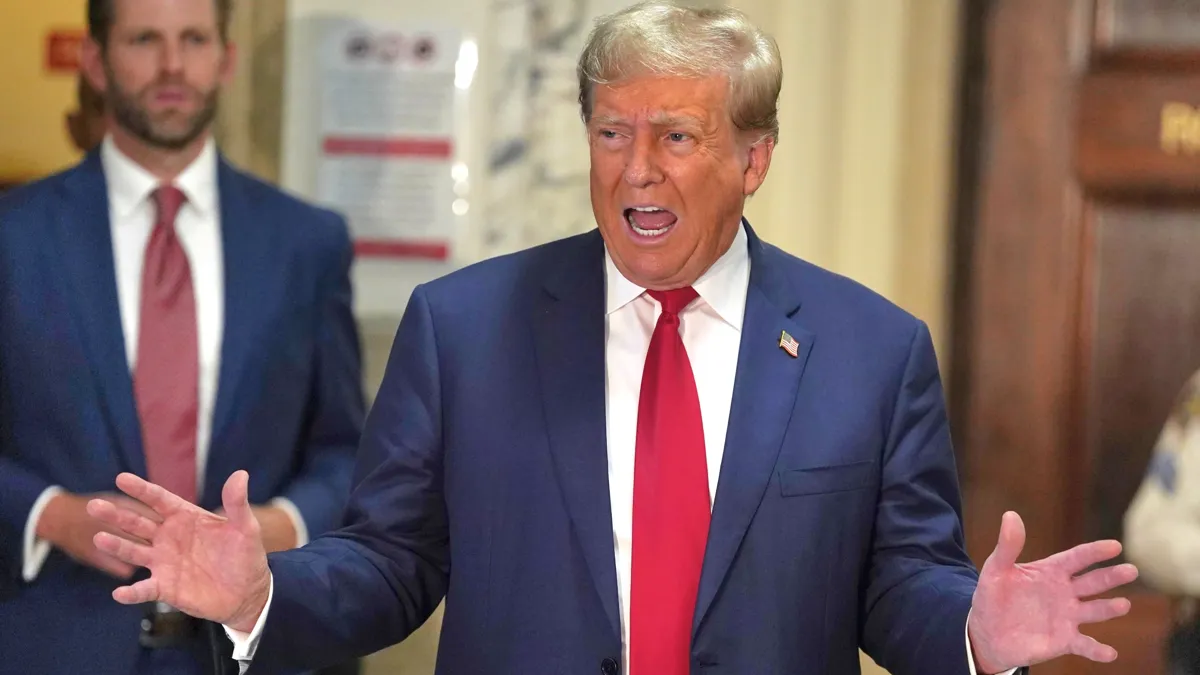Trump’s War on Knowledge
Donald Trump’s crusade to eradicate antisemitism at elite US universities is nothing more than an excuse to attack the academy’s leftists and liberals

NEW YORK — US Vice President J.D. Vance could not have made his point more clearly when, in a 2021 speech taking aim at American universities, he quoted former President Richard Nixon’s line that «professors are the enemy.» Despite being a graduate of Yale Law School, Vance has been an eager foot soldier in President Donald Trump’s war on the country’s elite universities, which includes starving them of research funds, depriving them of foreign students, and trying to interfere in what is taught and how.
To «Make America Great Again, ” Trump is now actively engaged in destroying some of the institutions that made the US great in the first place. But what is motivating this frenzied attack on institutions which foster medical and technological breakthroughs, among the many other benefits they provide?
The charge that Harvard University and other top schools are hotbeds of antisemitism is rich coming from a president who professed to recognize «some very fine people» among torch-carrying neo-Nazis who screamed that «Jews will not replace us.» Indeed, the MAGA definition of antisemitism seems to be limited to critics of the current government of Israel. Thus, in their view, opponents of Binyamin Netanyahu, or anti-Zionists, must be antisemites.
There are undoubtedly some actual antisemites among pro-Palestinian student protesters — and perhaps among their teachers, too — but that is hardly a reason to crush higher education. The stated aim of eradicating antisemitism on Ivy League campuses is nothing more than an excuse to attack the academy’s leftists and liberals, many of whom happen to be Jews. And if America’s university system breaks under the pressure, Jews are most likely to be blamed.
Hatred of intellectuals, and scientists in particular, has always been a feature of radical populism. In the 1930s, Adolf Hitler claimed that Germans «suffer from over-education. Only knowledge is prized. The know-it-alls are the enemies of action.»
The Nazis associated science with Jewish «cosmopolitans» because it transcends national and cultural differences. Instead, they preferred to view research through the reductionist lens of race. As the pro-Nazi German physicist Johannes Stark wrote in 1934, «the leading scientific positions in the National Socialist state are to be occupied not by elements alien to the Volk but only by nationally conscious German men.»
The MAGA world’s loathing of diversity and inclusion programs owes something to this type of thinking, as does the goal of purging universities of «anti-American» elements. The animus against foreign students, who bring enormous economic and cultural benefits to US higher education, is not only xenophobic, but hugely damaging to American soft power.
But class resentment might have more to do with this push than racial prejudice, even though race and class, especially in the US, often overlap. American society, like others in the Western world, has become increasingly meritocratic over the past century. High social status is less dependent on family background or even financial wealth than on higher education.
Being highly educated, however, is not just a matter of achieving an academic degree. A certain cultivation in the arts is required, as is a love of reading and a thirst for knowledge, preferably gained in more than one language. Trump is very rich and has a bachelor’s degree from the prestigious Wharton School of the University of Pennsylvania. But he is not known for being well read or particularly knowledgeable, except perhaps in deal-making — and even that distinction has been tarnished by his spectacular business failures.
The MAGA assault on higher education reminds me of a story recounted by the late Belgian sinologist and essayist Simon Leys. He was sitting one day in a simple Australian café, unbothered by the loud rubbish coming from the radio. No one appeared to be listening, either. Then, suddenly, for some reason, a lovely clarinet sonata by Mozart began to play. This got people’s attention. One man resolutely changed the station. Leys concluded that the uncultured can, in fact, recognize beauty all too well, which is why they must tune it out. As he wrote: «In every department of human endeavor, inspired talent is an intolerable insult to mediocrity.»
But there is another side to this assault, which Leys, with all his refined taste and erudition, doesn’t capture. Personal mediocrity is not the only reason why Trump, Vance, and some of their most ardent supporters detest the highly educated. Again, there is the question of class. Academic degrees, or even good taste in music, are not enough to achieve high social status. In recent years, a degree of conformity to certain views on race, sexuality, and gender was also required. To be «progressive» was not just a sign of intellectual superiority, but also of moral rectitude.
As a result, even some of the best universities have become rife with intolerance, which is inimical to academic freedom. With politics framed as a form of theology, faith separates the brethren from the infidels. Conservatives and even MAGA adherents are not entirely wrong to feel offended by the moral smugness of educated urban elites who consider themselves better people than Hillary Clinton’s «deplorables, ” the gun-loving Christians, and the boorish businessmen who have never read a good book.
In this sense, and this sense alone, US universities might benefit from Trump’s war against them. If only out of self-preservation, they will have to drop some of the moralism that has come to permeate campus culture and concentrate once again on the basic task of discovering and conveying knowledge, without which we will all be much worse off.


